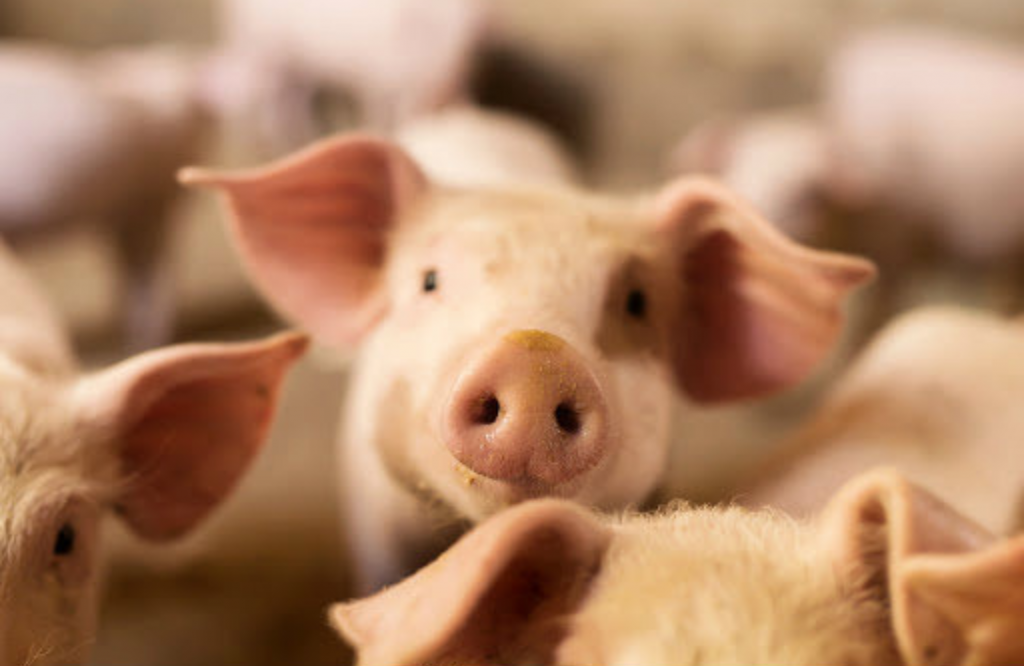Foot & Mouth Disease (FMD) has dominated headlines recently, but are you wondering what it is and why it matters to everyone, not just farmers? Here's a 101 on this disease and why it's important to know about it.
What is FMD?
FMD is a highly contagious animal viral disease that affects cloven-hoofed (split toe) animals such as cattle, sheep, goats, alpacas and pigs. It has significant animal health and welfare implications. Animals develop painful blisters on their mouth and feet, inhibiting their ability to eat, drink and walk. While there is a preventative vaccine, there's no specific treatment.

Does FMD affect humans?
Human infections very rare and do not result in serious disease. People cannot be infected from eating meat from infected animals. Humans can carry the virus in their nose for up to 24 hours. If they've been in contact with an infected animal, they can carry the virus on their clothes or pick it up on mud or manure on their shoes, all which can be a source of infection for animals. Vehicles, sporting equipment (think bike tyres) and camping equipment are just some other examples of things that can carry FMD.
So FMD can arrive on people and their equipment. How else can it be carried?
Australia doesn't allow imports of any susceptible live animals, semen or uncooked meat or unprocessed dairy products from FMD-affected countries or zones. FMD virus is most likely to be introduced in contaminated, illegally imported animal products.
What would happen if FMD arrived in Australia?
Industry and government have been preparing for an outbreak for decades and the first 72 hours of FMD being detected in Australia would be critical. It would mean livestock standstills and then vaccinations would be rolled out. Sadly, it means infected animals would need to be euthanised to prevent them from suffering and to stop the disease spreading further.
It's hard to predict the scale of the response and the impact to consumers. However, we would expect a reduction in meat, milk and cheese production, so everyday Australians would see this on supermarket shelves. It could cost the Australian economy about $80 billion - enough to potentially tip us into recession. Australia's trade markets would snap shut and our "clean, green" reputation would take an enormous hit. Not only would it be gut wrenching for farmers who have cared for these animals for generations, but the businesses and workers along the supply chain from truck drivers to butchers and production and packaging facilities would all be affected.
FMD has been around for years in other countries, why are we so worried now?
Because of how close Indonesia is to Australia and the disease is not yet contained. The risk heightened even more when it was detected in Bali. Pre-Covid more than a million Aussies visited Bali each year and numbers are growing again now overseas travel is back on the cards. This increases the chance of someone bringing the virus into Australia on their clothes or shoes, or through a souvenir or food.
Is Australia helping Indonesia?
Australia is liaising with its Indonesian neighbours to help manage the outbreak, including sending experts to help on the ground. The Australian Government has also provided funding to supply vaccines to Indonesia and support industry-led assistance.
Why don't we vaccinate now?
Australia is recognised as "free from FMD, without vaccination". This allows Australia's international trade to continue. If vaccination were implemented, Australia would lose this valuable status.
Are there other threats to Australia besides FMD?
Yes! Unfortunately there are many pests and diseases that threaten Australia's environment and animals. Recently in NSW the deadly varroa mite meant millions of bees had to be destroyed to prevent the mite from spreading further. Along with impacting the availability of honey, much of Australian agriculture depends on bees for pollination. A large scale outbreak would mean less foods like almonds, apples, avocados and blueberries. There are many other looming threats we need to keep out such as Lumpy Skin Disease or African Swine Fever, or the black spined toad which has the potential to cause more damage to Australia's environment than the cane toad.
What can we do?

Industry bodies, such as the National Farmers' Federation, are calling for a long-term funding pipeline from the government as well as other measures to make sure no stone is left unturned when it comes to biosecurity.
What the average person can do is firstly understand and be conscious about biosecurity. That might mean ensuring your shoes are clean before entering your local conservation park to avoid inadvertently bringing in any exotic seeds, or not releasing a pet goldfish into a river.
But for FMD, it is making sure you thoroughly clean your clothes, shoes and equipment before you travel to Australia, and avoiding farms and livestock while overseas and in the first seven days after arriving in Australia. It's also important to be honest on the incoming passenger card and follow the instructions from biosecurity officers.
Biosecurity risks can also come into Australia via food and drinks, animal products such as fur and leather, or even from the natural environment like beeswax, seashells or feathers. Again, make sure you dispose or declare any food, plant or animal product upon arrival, or if it's being mailed, make sure you check it meets the rules.






